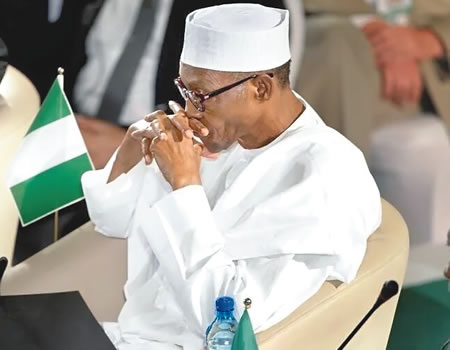By Abdulkabir Olatunji
President Muhammadu Buhari complained recently about the way he believes the Nigerian media has refused to publicise his achievements and by extension that of his government. Speaking to young political appointees in his government at a meeting with them on Wednesday in Abuja, the president expressed his dissatisfaction: ” “I’m very disappointed in the Nigerian press. They didn’t give this government the credit of the ‘Go back to the land’ programme. We have cut down the importation of rice by at least 90 per cent,” he said.
There has been a mixed reaction to this with some people saying his media aides have not done enough in the area of publicizing government programmes while others believe it is just the case of a failing president giving excuses for his failure.
However, I have another perspective on this issue which is that while the majority of the media might not be deliberately going out of its way to hide the Buhari government’s achievements, there are some underlying reasons why progress being made might be under-reported.

President Buhari
First, the prevalence of social media means that journalists are not immune from messages that become viral or popular. Going by patterns in the last 3 years of the Buhari administration, it is obvious that the opposition has a louder voice than the government or its supporters on social media. Hence, at least, until very recently, the messages on social media were largely anti-Buhari with the opposition, its supoorters and sympathizers making every effort to downplay the government’s achievements. Such people would argue for example that N-power is not a viable programme even when evidence suggests the opposite, the same with the government’s school feeding programme that is beginning to gain international attention. In terms of project delivery and initiation of new ones that can really drive economic growth and development like the railways and investments in electricity, there is the same tendency for the opposition inspired social media chorus to insist progress is not being made. Now, if a journalist gets immersed in all of this negativity, they may begin to subconsciously suppress the positives of this government and amplify what the opposition considers the negatives. For example, a lot of the reportage on the killings in Benue state and other states in the middle-belt has been rather unprofessional and problematic if one wants to be brutally honest. Killings in Zamfara state and the state of insecurity which was probably worse around the same time went largely underreported. A case of similar situations, different reactions by the media. Perhaps, because the Benue state situation falls into a prevailing narrative and the Zamfara situation does not.
A second reason that President Muhammadu Buhari’s government might be finding it difficult to get proper reportage on its efforts and achievements in moving Nigeria forward is the fact that a certain part of the media that has become influential especially on the Internet has defined itself by focusing on what is wrong rather than what is going right for Nigeria. Therefore, a check on the headlines promoted by some of the most popular online media in Nigeria will show that stories of scandals and misdemeanour by government officials are actively promoted rather than developmental news. The public that has been nourished on drama over the years demands no less.
Members of the media respond to this criticism by claiming they are only reporting what happens — a fair submission on the surface. However, closer scrutiny shows that the media rarely publishes negative news about itself. So, we do not read stories about how journalists collect and sometimes demand gratification when they are sent to cover events in the corporate world and government itself. One might be tempted to think that journalists have a higher moral consciousness than the rest of society, we rarely read about journalists committing crimes or being involved in scandals. Does this mean they are more disciplined than the rest of society? I opine that this is not quite so, a young journalist told me with a sentiment akin to despair recently that leading media personalities insist on molesting and abusing young women seeking to be trained or start work in the industry. How many media houses have reported this in Nigeria? Almost none.
Then there is the corruption by journalists who are available for a fee to either promote certain causes or kill certain stories. Information and misinformation has become a tradable commodity for this set of journalists and they are plenty in Nigeria.
This article is not meant to suggest that the government of President Muhammadu Buhari is without its problems and blemishes — far from it. It has not always provided factual information in a suitable and timely manner. It has not done enough to engage the social consciousness of Nigerians towards responsible use and sharing of information and of course, people have a right to criticize many of its policies either because they might be bad or could be better.
Ultimately, the government and the media can do better to ensure that the news we get as Nigerians is factual and not contrived to achieve certain objectives that might not be in our collective interest as a people. The media needs to also play its part in nation building and this is not synonymous with negative news by default. There is room for criticism but there should also be equal room for reporting progress and positive ideals.







All Comments